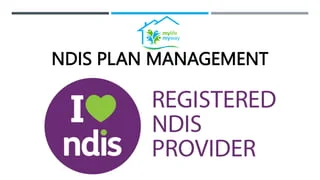The Future of Dentistry: How Dental Practice Management Consultants Can Revolutionize Your Clinic

Navigating the Dental Hygiene Landscape with an Expert
Optimizing Dental Hygiene Teams with Technology
In the dynamic field of dentistry, optimizing dental hygiene teams with technology is a pivotal step towards modernizing practices and enhancing patient care. Dental practice management consultants play a crucial role in this transformation by introducing innovative solutions that streamline workflows and improve efficiency. For instance, the integration of a dental hygiene academy into the training regimen can ensure that hygienists are well-versed in the latest techniques and technologies.
By leveraging technology, dental practices can automate routine tasks, allowing dental hygienists to focus more on patient care and less on administrative duties. This shift not only improves the quality of service but also boosts the overall productivity of the team.
Consultants often recommend the adoption of digital tools such as electronic health records (EHRs), digital radiography, and scheduling software. These technologies facilitate better communication between team members and with patients, leading to a more cohesive and efficient practice. Below is a list of key benefits that technology brings to dental hygiene teams:
- Enhanced accuracy and accessibility of patient records
- Improved appointment scheduling and reminder systems
- Streamlined patient check-in and check-out processes
- Easier tracking of hygiene-related metrics and outcomes
Embracing these technological advancements, under the guidance of seasoned consultants, can significantly elevate the standard of care provided by dental hygiene teams.
The Impact of Expert Guidance on Practice Success
The collaboration with a dental practice management consultant can be likened to having a seasoned navigator for a complex journey. Their expertise and strategic advice are instrumental in steering a dental clinic towards its goals, ensuring that every decision made is informed and every opportunity is seized.
The right consultant brings a wealth of knowledge that can transform a practice, offering tailored solutions that cater to the unique challenges and goals of a dental clinic.
Consultants are adept at identifying areas of improvement that may not be immediately obvious to the clinic’s staff. They can help to implement new technologies, refine patient care protocols, and optimize operational workflows. This level of guidance is crucial for a practice’s success, as it leads to:
- Enhanced team performance and patient care
- Improved financial health through strategic planning
- A competitive edge in a rapidly evolving industry
By measuring growth and performance with concrete data, practices can see the tangible benefits of expert guidance. The numbers reflect the positive changes, and while they may not shift overnight, a strategic plan developed in collaboration with a consultant ensures sustainable success.
Streamlining Operations for Enhanced Efficiency
Efficiency is not just a buzzword in the dental industry; it’s the backbone of a thriving practice. Streamlining operations for enhanced efficiency can lead to significant improvements in both patient care and the bottom line. A dental practice management consultant can be instrumental in identifying bottlenecks and implementing solutions that optimize workflow and resource allocation.
- Workflow Optimization: By analyzing current processes, consultants can pinpoint inefficiencies and suggest improvements.
- Technology Integration: Leveraging the latest dental software can automate tasks and streamline patient management.
- Staff Training: Equipping the team with the right skills ensures that everyone is working at their best.
- Scheduling Systems: Efficient scheduling reduces wait times and maximizes chair utilization.
Streamlining operations is not just about cutting costs; it’s about creating a more agile and responsive practice that can adapt to the changing needs of patients and the market.
Improving Financial Performance
Financial Analysis and Budgeting Strategies
In the realm of dental practice management, financial analysis and budgeting strategies are pivotal for ensuring the clinic’s prosperity and growth. By meticulously analyzing financial data, consultants can pinpoint areas where the practice may be overspending or underutilizing resources. This process often involves a deep dive into the clinic’s financial statements, patient billing patterns, and operational costs to develop a comprehensive budget that aligns with the practice’s goals.
Effective budgeting is not just about cutting costs; it’s about smart allocation of resources to areas that will yield the highest return on investment. For instance, investing in advanced dental technology might have a significant upfront cost, but the long-term benefits in terms of efficiency and patient satisfaction can lead to increased revenue.
Here are some key steps in the financial analysis process:
- Reviewing and categorizing all expenses
- Analyzing revenue streams and identifying growth areas
- Setting realistic financial goals based on historical data
- Creating a budget that supports strategic business objectives
- Monitoring financial performance regularly and adjusting the budget as needed
By embracing a strategic approach to financial planning, dental practices can navigate economic uncertainties with confidence, ensuring they remain competitive and financially healthy in the long term.
Identifying Revenue Opportunities
In the ever-evolving world of dentistry, identifying revenue opportunities is crucial for the growth and sustainability of your practice. By analyzing market trends and patient demographics, dental practice management consultants can pinpoint areas for potential expansion and services that may increase profitability.
- Market Analysis: Understanding the local market and patient needs.
- Service Expansion: Adding new services or enhancing existing ones.
- Pricing Strategies: Adjusting fees to align with market standards and value provided.
Embracing innovative strategies and technologies can lead to the discovery of untapped revenue streams, ensuring your clinic remains competitive and financially robust.
Furthermore, consultants can assist in optimizing the use of digital tools such as Google Ads, which has proven to be an effective method for attracting new patients. By targeting the right audience and crafting compelling campaigns, your practice can achieve a higher return on investment, driving revenue growth.
Cost-Saving Measures for Long-Term Stability
In the pursuit of long-term stability, dental practices must consider cost-saving measures that not only reduce expenses but also maintain or enhance the quality of care. Shifting sourcing arrangements can lead to improved service quality and lower operating costs, which are essential for a sustainable practice. By focusing on investment avoidance, particularly in areas like IT, practices can control or even prevent unnecessary expenditures.
- Improved service quality with higher performance standards
- Lower operating costs compared to previous expenses
- Investment avoidance, especially in IT
- Flexibility to scale services up or down
- Enhanced management focus on core business challenges
- Compliance with regulatory burdens
By refining labor and material costs reduction programs and exploring alternative designs, dental practices can achieve significant efficiency gains. This strategic approach not only saves money but also time, contributing to a more streamlined and effective practice management.
It is crucial to prioritize routine checks and seek professional help when necessary to address issues that may impact financial performance in the long run. A proactive stance on cost-saving measures ensures that dental practices remain competitive and financially healthy, ready to serve their communities for years to come.
Enhancing Patient Experience
Crafting Strategies for Patient Satisfaction
In the realm of dentistry, patient satisfaction is paramount. It’s the cornerstone that determines whether a practice thrives or merely survives. Creating an experience that resonates with patients is not just about the quality of dental care provided; it’s about the entire patient journey, from the first phone call to the follow-up after treatment.
- First Impressions Matter: Ensure that the first point of contact, whether it’s a phone call or a website visit, is welcoming and informative.
- Quality Care: Provide high-quality treatments with a friendly staff in a clean and modern office environment.
- Follow-Up: Implement a system for following up with patients to show that their well-being is a priority even after they leave the office.
By focusing on these key areas, dental practices can boost smiles and patient loyalty, turning satisfied patients into raving fans who are eager to refer friends and family.
Understanding that patient satisfaction is more than a metric—it’s a reflection of the practice’s ethos and commitment to excellence—is crucial. A well-oiled system that enhances the patient experience can lead to increased practice production and a loyal patient base.
Leveraging Digital Tools for Improved Care
In the modern era of dentistry, leveraging digital tools is essential for improving patient care. Dental practice management consultants emphasize the importance of integrating advanced technologies to streamline clinical processes and enhance the overall patient experience. By adopting tools such as electronic health records (EHRs), telemedicine platforms, and sophisticated patient communication systems, clinics can offer more efficient and accessible services.
- Electronic Health Records (EHRs): Centralize patient data for easy access and management.
- Telemedicine Platforms: Enable remote consultations and follow-ups, expanding care beyond the clinic.
- Patient Communication Tools: Facilitate appointment scheduling, reminders, and ongoing patient education.
Embracing these digital solutions not only simplifies administrative tasks but also empowers dental professionals to focus more on patient care. The integration of such tools can lead to better health outcomes and a more personalized approach to dentistry.
The transition to digital-centric care requires careful planning and execution. Dental practice management consultants can guide practices through this transformation, ensuring that the adoption of digital tools aligns with the clinic’s goals and enhances its operational efficiency.
Building Trust and Loyalty Through Personalized Services
In the competitive field of dentistry, building trust and loyalty with patients is paramount for a thriving practice. Personalized services are not just a courtesy; they are a strategic approach to patient retention. By tailoring the dental experience to individual needs and preferences, clinics can create a more engaging and comforting environment for their patients.
Personalization in dentistry goes beyond addressing a patient by name. It involves understanding patient histories, preferences, and even anxieties, to provide a care plan that feels uniquely theirs.
Implementing a patient-centric approach involves several key strategies:
- Developing comprehensive patient profiles to guide personalized care.
- Utilizing patient feedback to refine services and address concerns.
- Creating a welcoming clinic atmosphere that reflects the values and needs of the patient community.
These efforts not only enhance the patient experience but also contribute to a positive reputation, encouraging word-of-mouth referrals and repeat visits. The impact of personalized services on patient loyalty is clear, as they feel valued and understood, leading to a stronger patient-practitioner relationship.
Dental Marketing Consultant: Top Hiring Strategies & Expert Tips
Navigating Complex Marketing Landscapes
In the realm of dental practice, navigating complex marketing landscapes requires a multifaceted approach. Integrating various aspects such as SEO, content marketing, PPC, and social media into a cohesive strategy is essential. Setting clear goals is the first step to achieving desired outcomes like increased leads or improved client engagement.
Understanding your audience is crucial; their needs, interests, and behaviors should inform every marketing decision. Optimizing content for both information and search engines, and leveraging multiple digital channels, ensures a broad and effective reach.
A tailored digital marketing campaign is not a set-and-forget endeavor. It’s a dynamic process that must evolve with your practice and the digital environment.
Analytics play a pivotal role in this process. Tracking progress and analyzing data allows for informed adjustments to the strategy, ensuring that your dental practice remains competitive and resonates with clients when they are ready to make decisions.
- Set Clear Goals
- Know Your Audience
- Optimize Your Content
- Leverage Multiple Channels
- Track, Analyze, and Adjust
Attracting Patients with Effective Digital Strategies
In the competitive field of dentistry, attracting new patients is paramount for growth and success. Dental consulting experts emphasize the importance of a robust online presence to capture the attention of potential clients. A dental coach can guide your clinic through the nuances of digital marketing, ensuring that your strategies are not only current but also effective in reaching your target audience. Dental practice management consultants advocate for a multi-faceted approach to digital marketing, encompassing various platforms and techniques to maximize reach and engagement.
- Identify your target audience: Tailor your digital content to the interests and needs of your specific demographic.
- Optimize your website: Ensure it’s user-friendly and ranks well on search engines for relevant keywords.
- Leverage social media: Engage with patients and build a community around your practice.
- Utilize retargeting strategies: Re-engage with visitors who have shown interest but haven’t yet committed.
- Innovate with digital advertising: Incorporate SEO, PPC, and social media marketing to enhance visibility.
By integrating these strategies, your practice can not only attract new patients but also build a lasting relationship with them, turning first-time visitors into loyal clients.
The data underscores the effectiveness of these strategies. For instance, 72% of patients use search engines to find new dental practices, and 61% are more likely to purchase from brands they follow on social media. This highlights the critical role that digital strategies play in patient acquisition and retention.
Utilizing the Latest Trends to Expand Practice Reach
In the dynamic world of dental practice, staying ahead of the curve is essential for growth. Dental practice management consultants are pivotal in harnessing the latest trends to expand your clinic’s reach. They provide tailored strategies that align with current digital movements, ensuring your practice remains visible and attractive to potential patients.
- SEO Mastery: Ensuring your website ranks high on search engine results.
- Social Media Engagement: Creating compelling content to engage and attract patients.
- Retargeting Tactics: Implementing strategies to re-engage visitors who didn’t book an appointment.
- Conversion Optimization: Turning website visitors into booked appointments.
By integrating these cutting-edge techniques, dental practices can significantly enhance their online presence and attract a broader patient base.
The role of dental practice management consultants extends beyond mere suggestions; they actively participate in the execution and monitoring of these strategies to measure effectiveness and adjust tactics accordingly. This hands-on approach guarantees that your practice not only keeps up with trends but sets new benchmarks in patient acquisition and retention.
The Vital Role of Payment Allocations in Your Dental Practice
Streamlining Financial Operations
In the dynamic world of dental practice management, streamlining financial operations is a cornerstone for achieving efficiency and profitability. Dental practice management consultants play a pivotal role in this transformation by introducing systems and protocols that enhance financial workflows.
- Financial Analysis: Rigorous examination of financial statements to identify areas of improvement.
- Budgeting: Crafting detailed budgets that align with practice goals and financial forecasts.
- Revenue Optimization: Implementing strategies to maximize income streams and patient billing efficiency.
- Cost Control: Identifying and mitigating unnecessary expenses to improve the bottom line.
By meticulously analyzing and restructuring financial operations, consultants can unlock new levels of performance and financial health for dental practices.
The integration of advanced IT solutions and adherence to regulatory standards, such as Sarbanes-Oxley, further ensures that practices not only comply with regulations but also leverage technology for better financial management. This strategic approach to financial operations is not just about cost savings; it’s about creating a sustainable model that supports the practice’s growth and adaptability in an ever-evolving industry.
The Direct Impact on Practice Revenue
Understanding the direct impact on practice revenue is essential for any dental clinic aiming to thrive financially. Proper payment allocation not only ensures accurate financial reporting but also highlights areas of profitability and concern. This clarity allows for more informed decision-making and strategic planning.
- Revenue Recognition: Timely and accurate allocation of payments is critical for recognizing revenue correctly.
- Cash Flow Management: Efficient payment allocation contributes to better cash flow management by identifying pending receivables.
- Financial Health Indicators: It provides clear indicators of the practice’s financial health, guiding future investments and operational adjustments.
By streamlining payment allocation processes, dental practices can significantly reduce administrative burdens, allowing for a more focused approach to patient care and service enhancement.
In conclusion, the way payments are allocated can have a profound effect on the overall financial performance of a dental practice. It’s not just about keeping the books in order; it’s about creating a robust system that supports growth and sustainability.
Best Practices for Payment Allocation Management
Ensuring accurate payment allocation is crucial for the financial health of any dental practice. Best practices for payment allocation management involve a systematic approach to recording and reconciling payments, which can significantly impact practice revenue.
- Consistency: Maintain a consistent method for allocating payments to ensure clarity and accuracy.
- Timeliness: Allocate payments promptly to avoid discrepancies and maintain up-to-date records.
- Accuracy: Double-check allocations to prevent errors that could lead to financial mismanagement.
- Training: Ensure that staff are well-trained in the allocation process to maintain efficiency.
By adhering to these best practices, dental practices can optimize their financial operations, leading to improved revenue management and overall practice success.
It’s also important to utilize software solutions that can automate and streamline the payment allocation process. This not only saves time but also reduces the likelihood of human error, further safeguarding the practice’s financial integrity.
Conclusion
As we have explored throughout this article, dental practice management consultants are pivotal in transforming dental clinics into more efficient, financially stable, and patient-centric practices. By leveraging their expertise in technology optimization, financial management, and marketing strategies, these consultants enable dental practices to navigate the complexities of the modern dental hygiene landscape. They are instrumental in enhancing patient experiences, streamlining operations, and ensuring that dental practices not only survive but thrive in an increasingly competitive market. Embracing the services of dental practice management consultants is not just a step towards improvement; it’s a leap into the future of dentistry.




